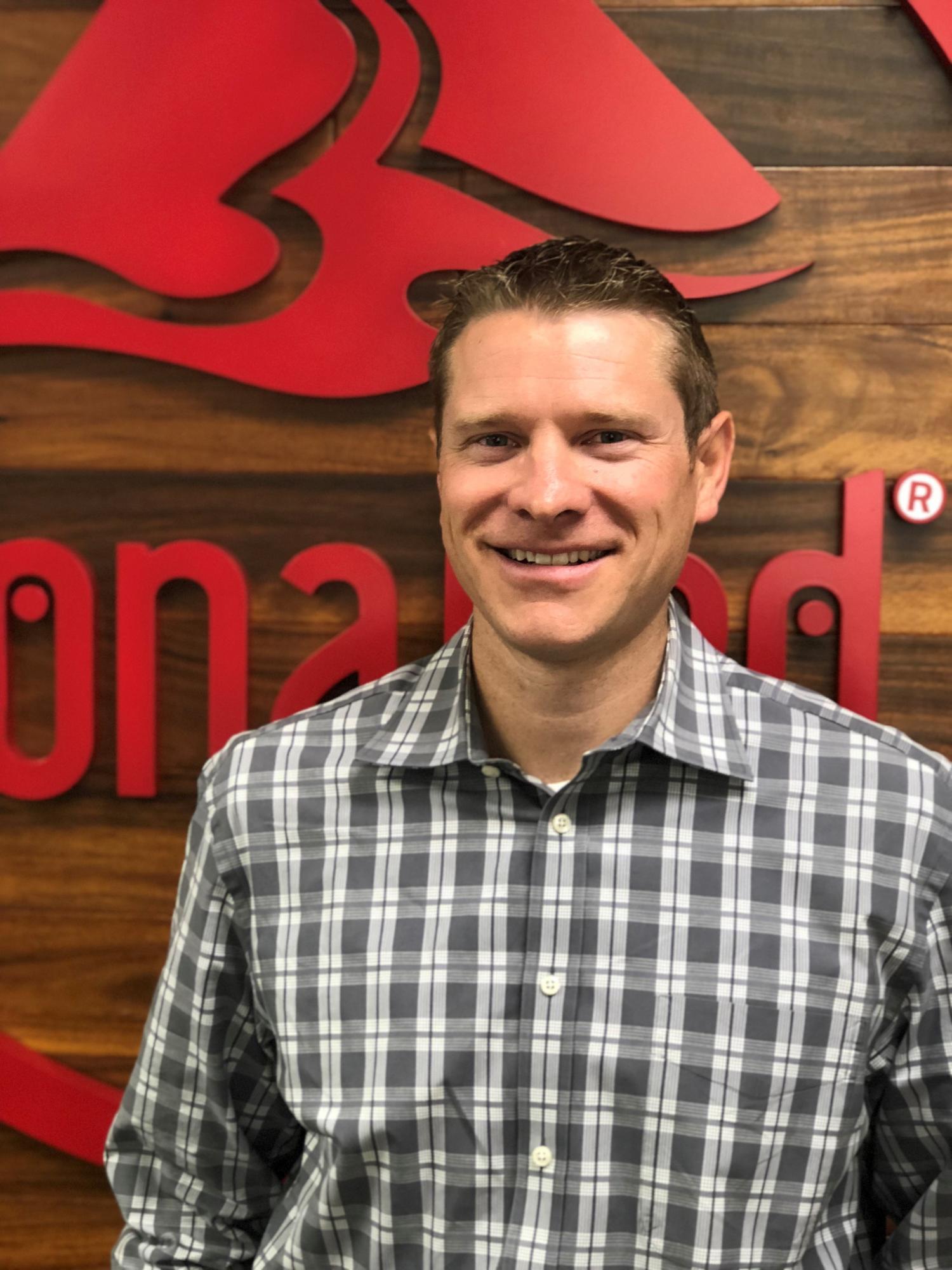
Q&A with Kyle Redfield, CEO of KonaRed

As CEO of Hawaiian coffee company KonaRed Corporation, Kyle Redfield (Econ’06) keeps one thing in mind: Sustainability. Annually, the Hawaiian Islands alone produce 40 million tons of coffee waste, and the Kona-based company is using the often-discarded coffee fruit — the fruit surrounding the coffee bean — in its products to cut down on waste. Here, the Winter Park, Colo., native talks his time at CU Boulder, super fruits and the future of coffee.
You’ve worked with two companies that focus on super fruits: POM Wonderful and KonaRed. What’s your draw to them?
Introducing something brand new to the food chain is really exciting. I love health and wellness — that’s the way I live my life, and that draws me to these types of products. A lot of what I did at POM was taking the excess pomegranate which amounted to truckloads of waste and turned that into one of the most profitable divisions within the company. When I joined KonaRed, I saw an opportunity for an entire industry that wasn’t taking care of their waste stream. Coffee fruit is the No. 1 untapped food source on the planet as coffee is the No. 2 traded commodity behind oil. That’s a lot of waste. Whenever you work in an industry that established, there’s going to be a lot of opportunities.
Why does KonaRed focus on the coffee fruit?
The discarded coffee fruit is a problem for many farmers. The bean (seed) is removed from the fruit (also called the coffee cherry), and then the leftover cherry skin is discarded, amounting to a lot of waste. When you discard the fruit, it starts rotting immediately, which then attracts critters and bad smells. It also damages the soil, which hurts the farmers because they can’t grow more fruit. We use the coffee fruit in every one of our products by making a concentrate juice out of it. We then add it to products like our cold brew coffee and supplements. It’s really our main ingredient.
Starbucks also just launched a new product with coffee fruit in it called cascara. We’re happy they and other people are using the fruit now, too, because it drastically reduces waste. Forty million tons of waste are gone just in Hawaii annually by using the fruit.
Since your coffee comes from Hawaii, do you visit the plantations often?
I go there once a quarter, and definitely during harvest season, which is July through December. Our farming infrastructure is there, and we are always working on continuous improvement to our supply chain. Plus, it is not a bad place to have to work.
Hawaii is the only place in the U.S. where coffee is grown.
What’s unique about Kona coffee in general?
Hawaii is the only place in the U.S. where coffee is grown. Since it’s the only U.S. manufactured and grown coffee, there are better regulations and better standards for it. Also, the climate for growing coffee there is incredible.
What advice can you give coffee drinkers to be more sustainable?
Use a reusable container to drink your coffee. If you’re going to go to a coffee shop, bring your own mug. If you are going to consume a ready-to-drink variety, like ours, always recycle the bottles.
What are some of your favorite memories of your time at CU Boulder?
Boulder holds a special place in my heart. I grew up going to football games as my dad had season tickets. When I came to CU after playing a year of junior college baseball, I played club baseball. While it wasn’t a D1 sport, the experience taught me so much about leadership. I also loved being at the Rec Center playing pick-up basketball, which is something I still enjoy doing today.
Was there a time at CU that solidified your decision to pursue a business career?
In my junior and senior years, I took higher-level economics classes. The concepts were easy for me to learn, and they made sense to me. Those classes convinced me there was going to be something I could apply to my future.
As CEO, what does your day-to-day look like?
I little bit of everything. I don’t consider us a small start-up anymore. We have to keep everyone safe and keep the operation going, while focusing on sales and marketing. I always want to uphold our product quality, and continue down our path of creating sustainable, healthy products. Upholding our company culture is also something I focus on daily.
What drives your work?
Certainly, wanting to make a difference. As we work every day, we’re spending time away from our families and we’re using our time and resources. I want to make my friends and family proud. I also want to represent CU Boulder well. I bleed black and gold.
What’s your favorite piece of career advice?
You have to hire the right team. One person can only do so much.
What do you look for when hiring?
Attitude first and foremost, then experience, then education.
How do you drink your coffee?
I drink KonaRed’s original coffee with a splash of milk. I don’t drink anything else at this point.
Are there any food trends happening right now that you’re into at the moment?
I’m lucky enough to be participating in the fastest-growing segment in the food and beverage industry, which is cold-brew coffee. But I’m also very intrigued by kombucha.
In the next couple of years, you’re really going to see cascara and coffee fruit become a huge development for coffee.
Condensed and edited.
Photos courtesy KonaRed

